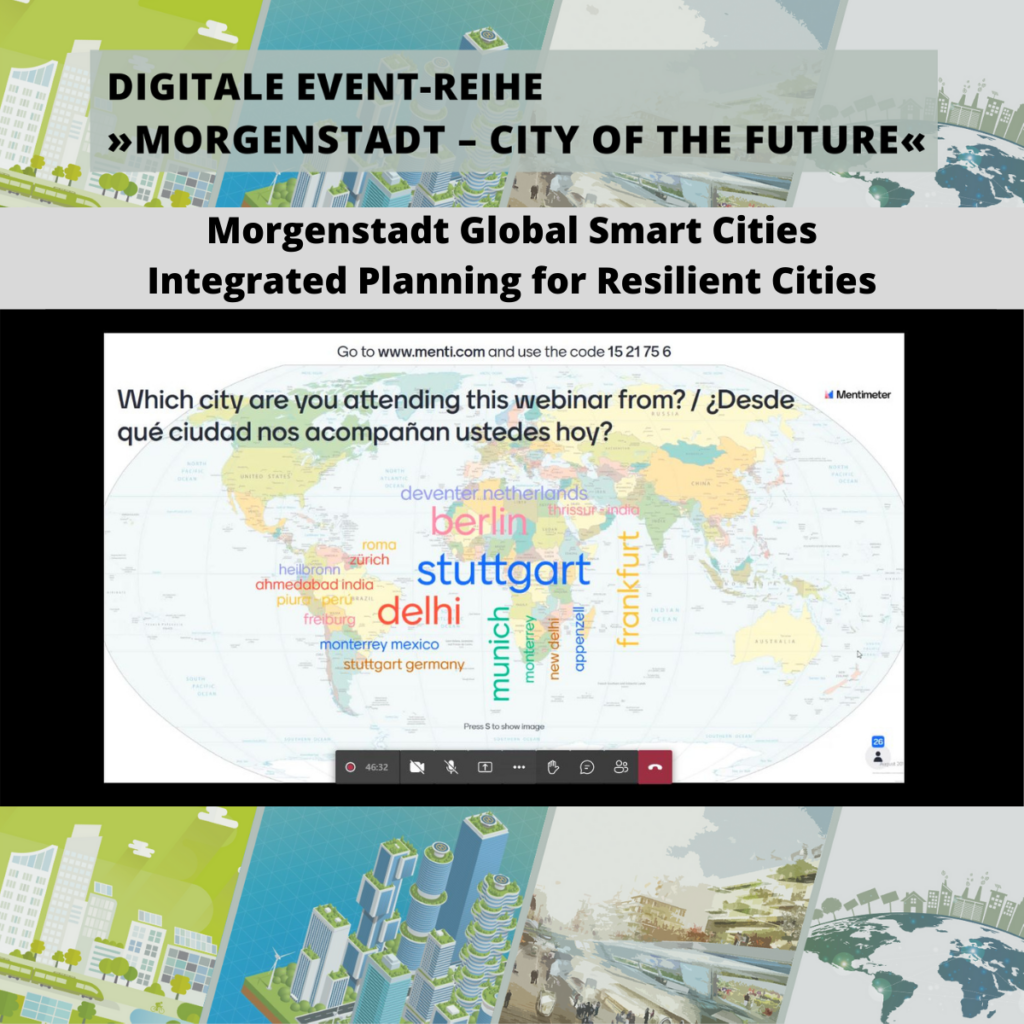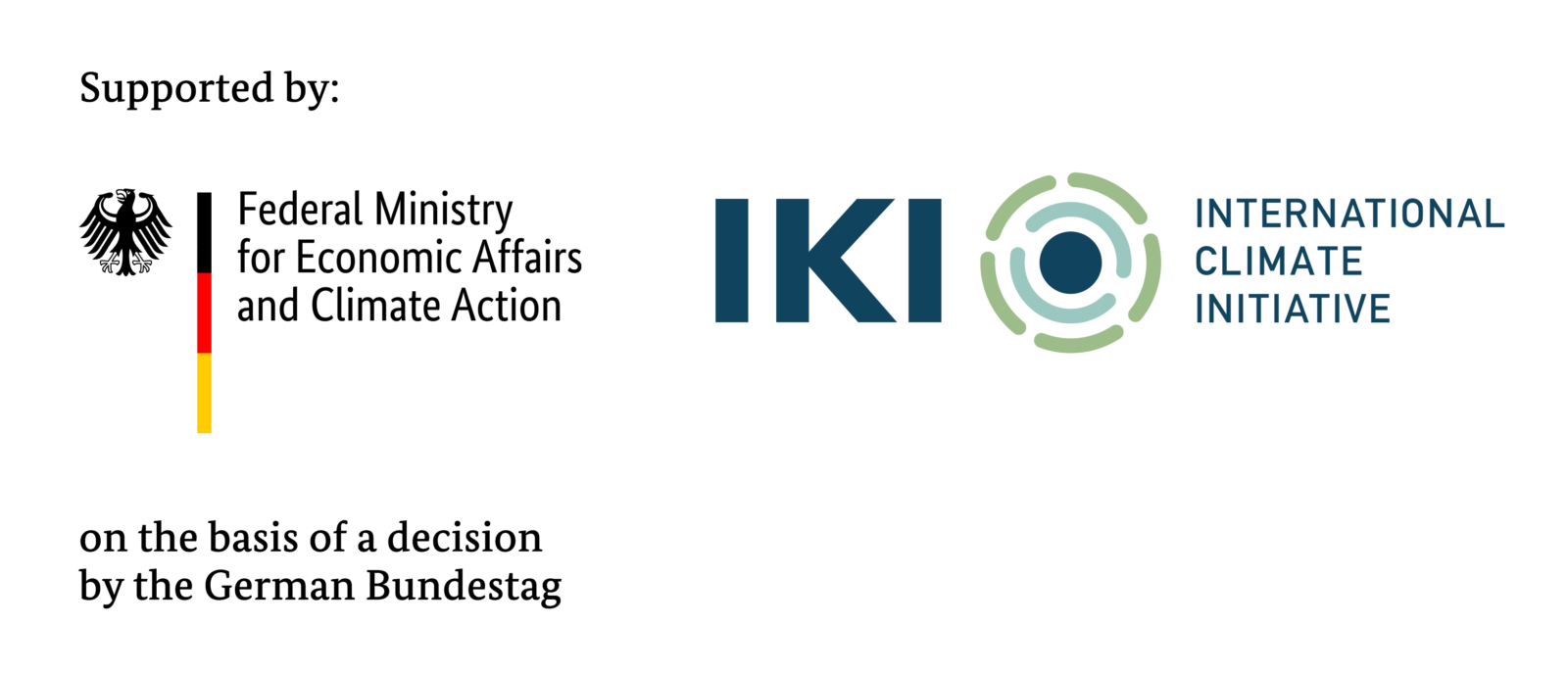Integrated Planning for Resilient Cities - Tools and Approaches
What role do data-driven approaches and co-creative or participatory processes play in integrated planning for climate resilient cities and how do they relate to each other? This question was at the center of the MGI webinar “Integrated Planning for Resilient Cities – Tools and Approaches” in the frame of the digital event series “Morgenstadt – City of the Future”. The basic premise of current approaches of integrated planning sees the utilization and combination of ICT tools and participatory approaches as crucial for making cities climate resilient. However, following up on the last MGI webinar on “Smart City Policies”, the notion of the “Smart City” oftentimes narrows the focus on tools and methods necessary for collecting and analyzing data and therefore always has to be combined with the inclusion of specific local, cultural and social factors.
In order to explore and discuss this question international experts presented the insights gained from experiences in their work. The introduction was led by Dr. Francesca Spagnoli who is Head of International Projects at the European Network of Living Labs (ENoLL). The Living Lab approach places the citizens at the center of innovation utilizing the opportunities ICT concepts and tools offer by being mindful of specific local context, cultures and potentials. She stressed the importance of the building blocks of social innovation, industrial demonstration and open science carried out in a transnational as well a cross-continental context via action-oriented task forces.

Importantly, ICT tools are not to be seen as separate from participatory processes but were shown to be especially effective in addressing citizens and stakeholders via visualization of abstract circumstances. This point was impressively illustrated in a live demonstration of a Digital Twin of Stuttgart by Leyla Kern from the High-Performance Computing Center Stuttgart (HLRS). Using systems for simulation and visualization offers the opportunity to enable evaluation and prediction but also promotes interdisciplinary collaboration.
The aspect of collaboration was also taken up in the presentation of the Use Case of Jakarta by Dr. Christiane Gebhardt and Dr. Haris Piplas from Drees & Sommer Switzerland. At the example of the “Smart City 4.0 Ecosystem Platform Jakarta”, it was shown that besides the centralized top-down approach of employing technologies like sensors, GIS or digital twins, the decentralized bottom-up approach of citizen engagement and focusing on economic well-being is crucial. In order to have happy citizens the local culturally defined concept of happiness in each city must be recognized.
Similarly, this aspect was addressed in the Use Case of Milan, which was presented by Ilaria Giuliani, Deputy Chief Resilience Officer of the City Resilience Department in Milan. Milan’s Resilience Strategy is based on the three pillars of efficient and participatory procedures, livable, comfortable and adaptive public and private spaces and inclusive, aware and proactive communities. In Q&A sessions and surveys in between the presentations participants exchanged ideas and experiences concerning tools and approaches and it was found that each city has its own unique requirements and therefore integrated planning needs to be approached with an open mind and a mentality of “learning by doing”. The next MGI webinar is planned for October 2021 on the topic of climate change adaption in urban water management.

